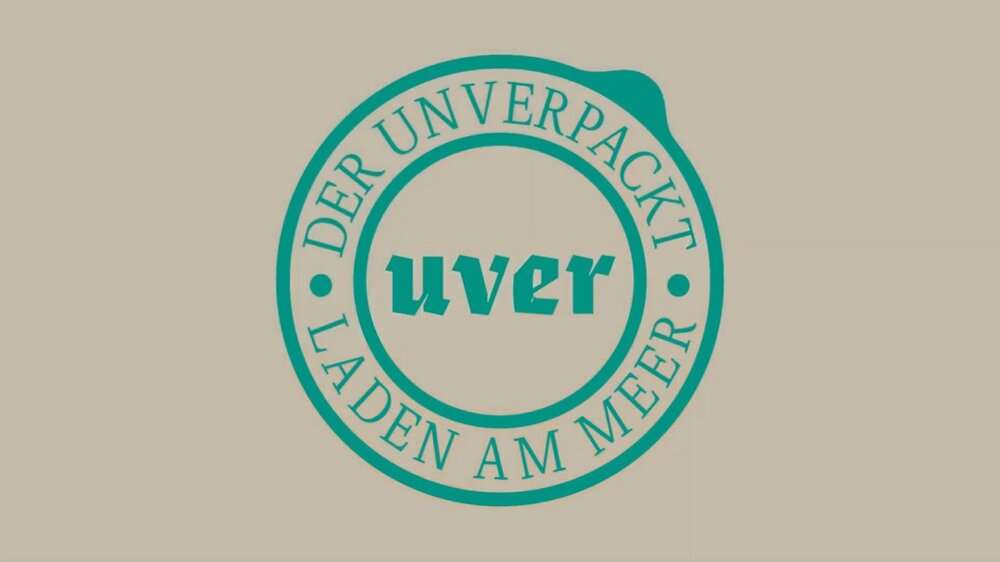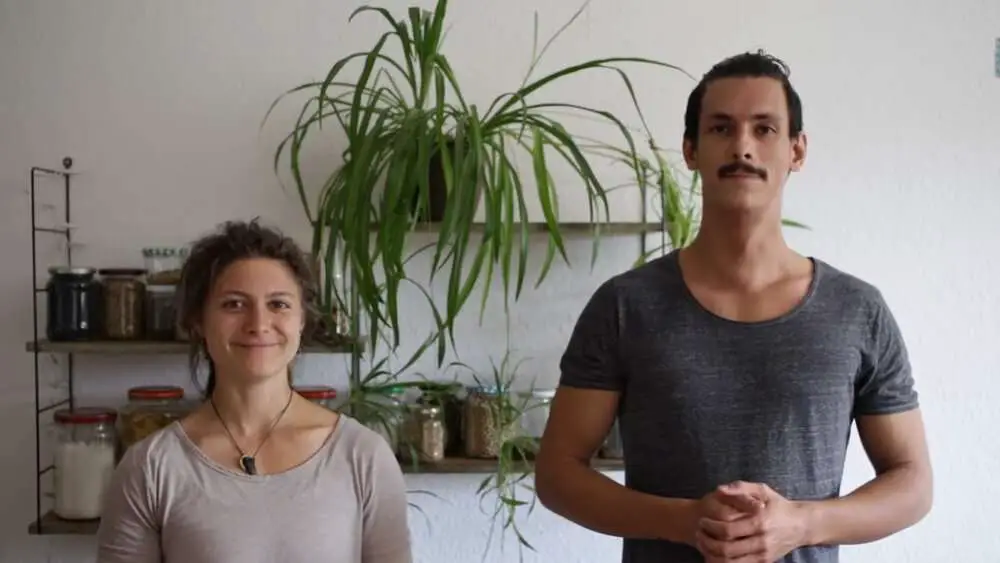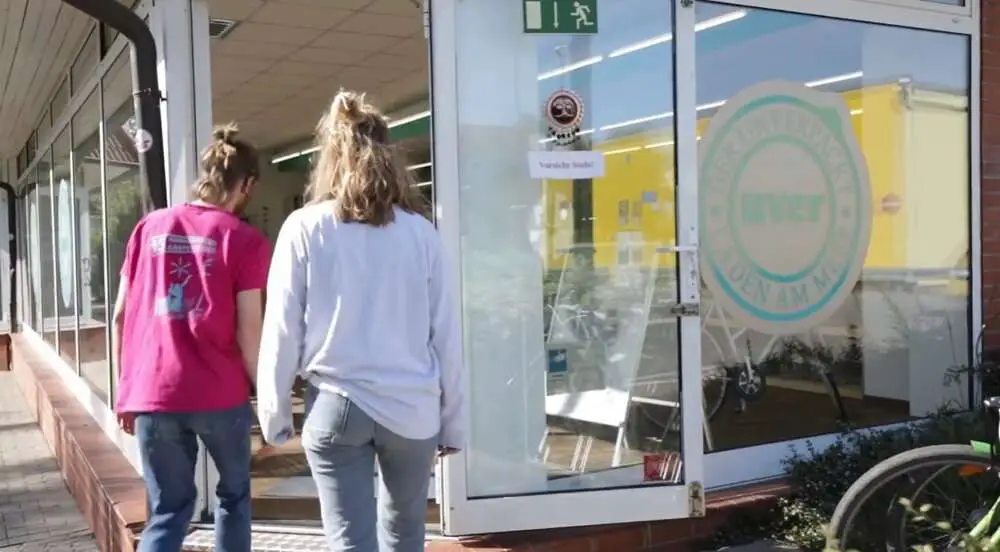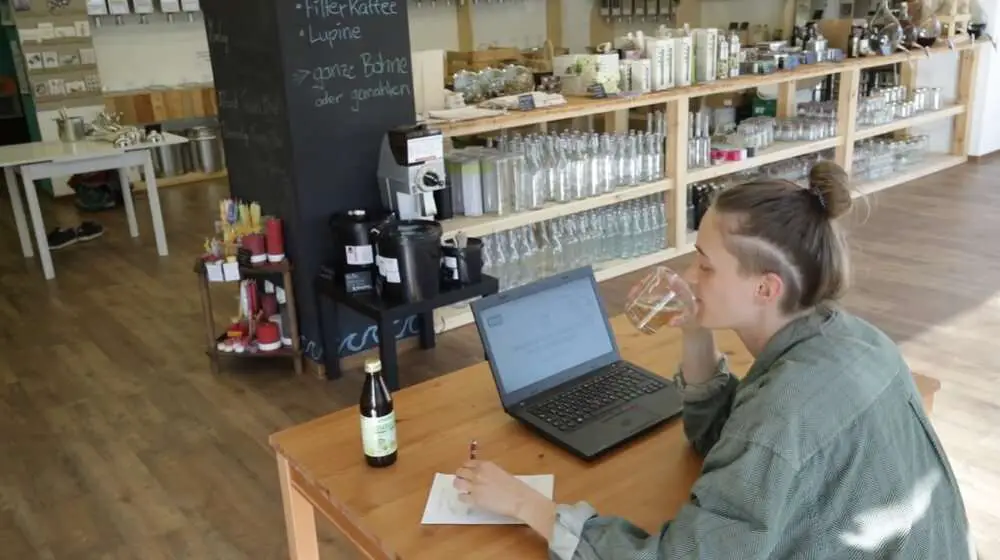The owners of a small packaging-free shop called Uver in northern Germany have said they face bankruptcy after US giant Uber sued them over their name.

Uver is a play on words in German for ‘unverpackt’ (‘unpackaged’) and ‘Ufer’ (the location on the Baltic Sea coast).
But Uber’s lawyers claim that the small shop in the city of Greifswald, in the German state of Mecklenburg-Western Pomerania, is a threat to its billion-dollar business.
The owners of Uver – students Esther, 29, and Philippe Schaefer, 27 – came up with the idea of their sustainable store to help people in the area cut down on packaging.

Their simple concept is that people bring their own containers to the store and avoid all the excessive packaging that typically goes hand in hand with a trip to the supermarket.
Philippe told German media: “The health of our environment and nature is very important to us, and we have been concerned with environmental protection and waste prevention for some time.”

But now Uber – the ride-hailing and delivery service – claims consumers might confuse the firms because of their names and the shop’s logo.
Lawyers for Uber reportedly sent the young entrepreneurs a letter demanding that they rebrand, a move that Philippe and Esther say could bankrupt their business, which they launched last year.
The legal letter from Uber reportedly said: “As you are certainly aware, our client is the owner of a wide variety of trademark rights to the designation UBER […] in particular for goods and various services in the field of passenger and food transport and transport as well as related goods and services.”
The store brand is therefore apparently problematic for Uber, which has demanded that they “perform a rebranding and immediately delete the trademark registration completely.”
This means that unless they fight back, Philippe and Esther will have to throw out a year and a half’s worth of work and come up with a new brand, a new logo and develop a new advertising campaign.
Philippe said: “We can hardly afford a lawyer, let alone a rebranding.”
He added: “For us and for the unpackaged vision in the region, this could mean bankruptcy.”
A spokesperson for Uber reportedly told German media that there are similarities between the business’ logo and name.
Uber reportedly said: “We have already submitted proposals for a solution to the entrepreneurs.”
The American giant added: “We are confident that we will soon find a mutually acceptable solution so that the team can continue to sell their sustainable products.”
Uber have even reportedly demanded that the young German company promise not to ever deliver groceries, but that is out of the question for Philippe, who said: “We don’t want to rule out the possibility of delivering our goods in Greifswald by cargo bike in the future.”

German daily Bild asked trademark lawyer Arndt Kempgens, 54, for his opinion. He said: “In such a legal dispute, the question is always whether customers could think that the – different – products come from the same company.”
In other words, it is a question of brand awareness, the mental association that a name evokes, and the similarity between the goods and services.
He added: “In the present case, I consider the respective brands to be clearly distinguishable and different.”
But Kempgens also said: “The cost risk in such proceedings is very high, because legal disputes over trademark rights mean very high amounts in dispute and therefore also very high court and legal fees. I therefore recommend an amicable solution!”
Philippe hopes that the large American company will play nice and reminded them of their common goal: “The group wants to make all journeys emission-free – by 2040. It could already be making a contribution to sustainability today: simply by letting us live.”



